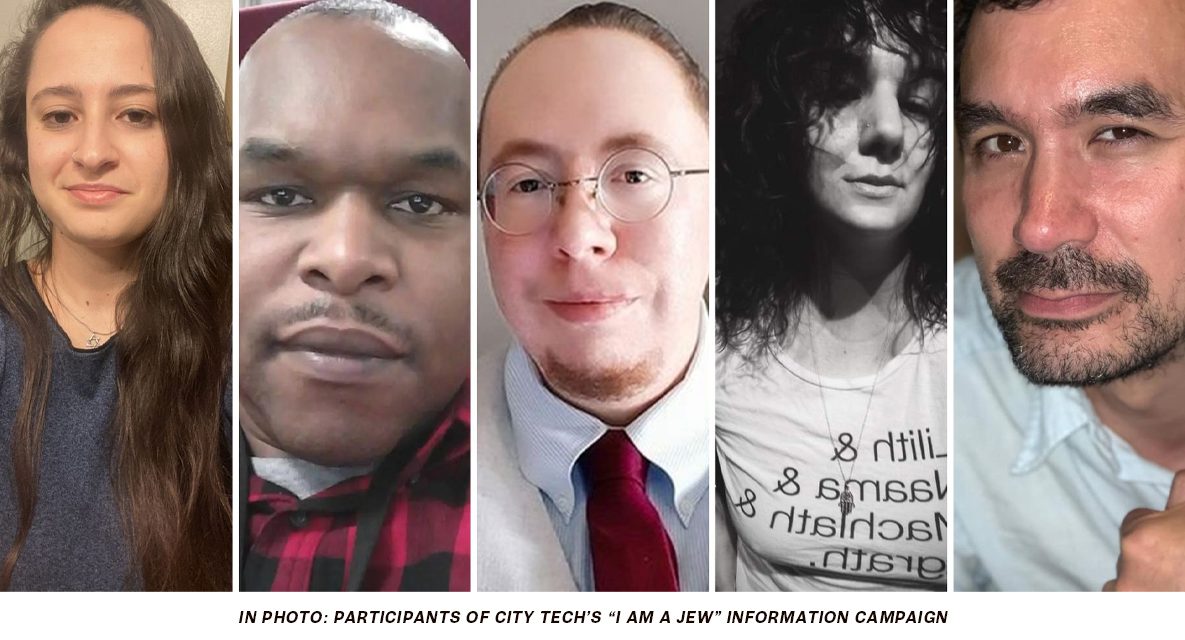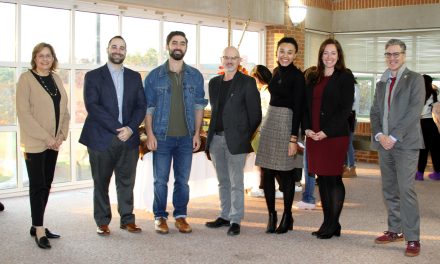With $750,000 in Funds, Colleges Work to Combat Religious, Racial and Ethnic Bigotry, Including Antisemitism
The City University of New York announced yesterday several programs that CUNY colleges and the central offices have developed with the $750,000 in Campus Climate Support Grants distributed by the University earlier this year.
“With the support of the Campus Climate Support Grants, our colleges and offices have been hard at work to ensure that our University is building a community that is welcoming to all,” said CUNY Chancellor Félix V. Matos Rodríguez. “We extend our thanks to the program facilitators across the system who are taking on this task of leading difficult conversations and educating the CUNY community on the many cultures and identities on our campuses.”
These programs are one component of the Chancellor’s multipronged plan to combat hatred and antisemitism on CUNY campuses and foster a system that is welcoming to all students from across our diverse city. Last month, the University joined the national #StandUpToJewishHate campaign with the Foundation to Combat Antisemitism to raise awareness about hatred against Jewish people. CUNY also launched a centralized portal to facilitate the reporting of discrimination and retaliation to analyze and address trends with respect to incidents of hatred, including antisemitism, at the University.
The Campus Climate Support Grants include the following projects:
- College of Staten Island conducted an assessment of its campus climate with the Higher Education Research Institute and is creating a diversity, equity and inclusion campus mural to highlight the diversity of the college’s student body.
- New York City College of Technology launched “I am a Jew,” an information campaign curated by two of the college’s professors to bring attention to the diversity among the Jewish population. The campaign aims to make all people who identify as Jewish feel comfortable, even if not perceived as fitting the common conceptions of who is Jewish or if prioritizing intersectional identities, such as Jewish members of the LGBTQI+ community.
- Lehman College’s student affairs division developed “SEEDS of Change” – an initiative, named after the college’s values of social justice; excellence; ethics; diversity and inclusion; and service, which comprised three campuswide conversations to discuss each other’s differences. The workshops covered race, ethnicity, immigration, religion and LGBTQI+ issues, and discussions were led by speakers from the CUNY community.
- CUNY’s Central Office of Student Affairs and the CUNY Innovative Teaching Academy created the CUNY Diversity & Inclusion Fellowship Program. This initiative supports faculty, staff and student leaders who will work collaboratively to create and implement equity- and justice-based workshops that help their colleagues enhance their campus climates and cultures. This summer, fellows will design a workshop for members of the University community to be implemented in the fall.
- Baruch College’s student cultural clubs, including Hillel, were invited to a “unity breakfast,” an educational opportunity for students to learn about how they can support each other’s cultures and how they are united as New Yorkers. Baruch College also held an Interfaith Dialogue: Importance of Faith and Space, organized by students from various faith groups. Out of this dialogue came the recommendation that the campus form a Multifaith Council, made up of students, faculty, staff, and administrators to continue the discussion on faith, space, and collaborations across religious groups on campus.
- At Brooklyn College, 40 students participated in the LEAD (Leadership, Empowerment and Advocacy Dialogues) for Change Student Retreat to promote cross-cultural understanding. Following the January retreat, a Muslim student organization at the school is currently organizing an interfaith event with members of the Jewish community on campus.
The grant-supported projects reinforce understanding and communication among students, faculty and staff; the programs enhance ongoing programmatic efforts across the University system to combat antisemitism and all forms of hatred on its campuses.
The City University of New York is the nation’s largest urban public university, a transformative engine of social mobility that is a critical component of the lifeblood of New York City. Founded in 1847 as the nation’s first free public institution of higher education, CUNY today has seven community colleges, 11 senior colleges and seven graduate or professional institutions spread across New York City’s five boroughs, serving over 243,000 undergraduate and graduate students and awarding 55,000 degrees each year. CUNY’s mix of quality and affordability propels almost six times as many low-income students into the middle class and beyond as all the Ivy League colleges combined. More than 80 percent of the University’s graduates stay in New York, contributing to all aspects of the city’s economic, civic and cultural life and diversifying the city’s workforce in every sector. CUNY’s graduates and faculty have received many prestigious honors, including 13 Nobel Prizes and 26 MacArthur “Genius” Grants. The University’s historic mission continues to this day: provide a first-rate public education to all students, regardless of means or background. To learn more about CUNY, visit https://www.cuny.edu.
















